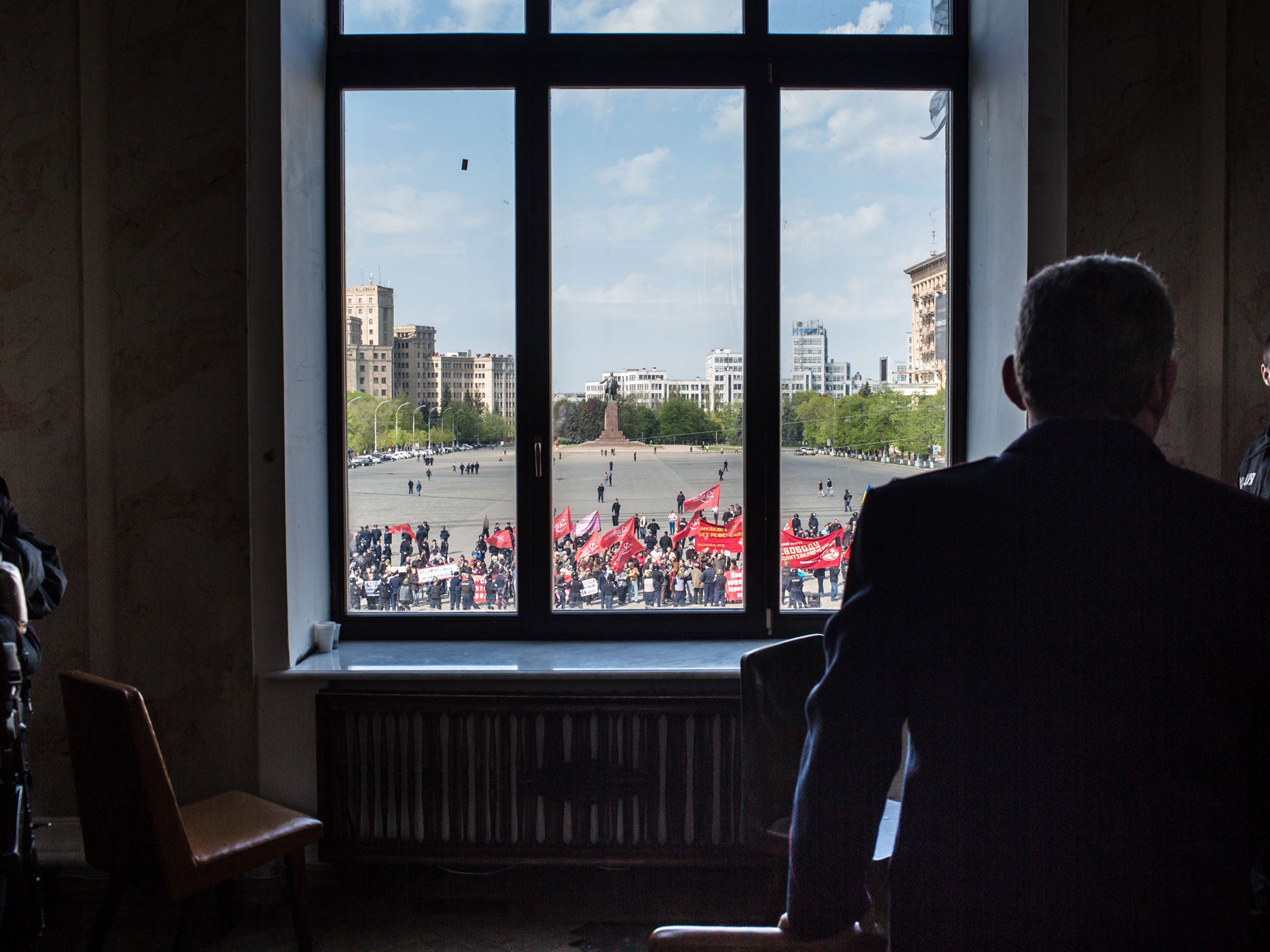Ukraine crisis: Fear of the future leads to calls for 'a wall like Israel's' to protect the porous border with Russia
In Ukraine's second city, Kharkiv, demands are growing for drastic action to seal the country's eastern flank which made it all too easy for Moscow to ship equipment and soldiers into the conflict

On the outskirts of the Ukrainian city of Kharkiv, roadside billboards remind residents of the penalty for espousing “separatism”: prison terms of between five and seven years. A few miles further along the main road north are newly dug trenches, designed to conceal defensive tanks and heavy artillery. Further again are more lines of fortification: the wire fences, trenches, and concrete anti-tank obstacles along the Russian border that are part of Ukraine’s “Project Wall”.
This is the reality of life for Ukrainians living close to the Russian border, just two months after the ceasefire that led to guns falling mostly silent across the east of the country – but also left pro-Russian rebels in control of great swathes of territory, with Russian support and weaponry supplied by Moscow.
Distrust of Moscow has been heightened by a report initiated by the murdered Kremlin critic, Boris Nemtsov, which claimed to have “ample evidence” that Russian soldiers had been killed in an “undeclared war” in Ukraine, despite President Vladimir Putin’s denials.
Proponents of Ukraine’s much-trumpeted Project Wall argue it is essential to seal Ukraine’s porous eastern flank with Russia, a legacy of the former Soviet Union that, they say, has made it all too easy for Moscow to ship equipment and soldiers into eastern Ukraine.
The hope is that the £124m “wall” will also provide a level of defence against any future Russian incursion. But, as the US Secretary of State John Kerry sat down for “frank” talks with Russian President Vladimir Putin in Sochi, their first since the Ukraine crisis unfolded last year, residents of Kharkiv, Ukraine’s second city 30 miles from the Russian border, are still in fear of the future.
In February last year, Kharkiv endured some of the worst demonstrations pitting pro-Russian campaigners against supporters of the Kiev government and police against protesters, and many believed it would become the first Ukrainian city to fall to the separatists.
Now the city is barely recognisable. A statue of Lenin, which once dominated Freedom Square and was the focus of pro-Russian demonstrations, was toppled in September. Pro-Russian demonstrations, once involving thousands, are today limited to small events on the city’s outskirts, and are almost immediately contained by the police. Many of the police themselves, once closely aligned with the pro-Russian insurgency, have been replaced by more loyal officers.
Yet Kharkiv remains a city on edge: heavily militarised, unnerved by what were until recently regular terrorist attacks, and wary of its vulnerability so near to the border with Russia just 30 minutes’ journey away.
Igor Raynin, the recently installed governor of Kharkiv region, brushes aside doubts over the usefulness of the wall. “It is designed for both security and defence”, he told The Independent. “The main defence aim is buying time for reinforcements. We have lots of secrets up our sleeves and the enemy should understand it is better not to mess with us.”
But Slavik Duda, a pro-government activist and member of the home guard, said he thought the design was likely to be ineffective. “We need a wall like the one between Palestine and Israel – this one isn’t going to stop anybody,” he said.
Mr Duda organised the assault that toppled Kharkiv’s bronze Lenin and his activism has not gone unnoticed. In December, terrorists blew up his furniture shop. Now he carries a combat knife as he patrols Kharkiv. “This is not the time to be tolerant of your enemies, because your enemy will finish you off,” he said.
Governor Raynin accuses Russia’s security services of playing a direct role in fomenting terrorism in the city. “We have evidence the terrorists are being trained in Belgorod, in Rostov, in Tambov,” he said. “And we have reason to believe it is on FSB [Russian security services] bases.” The people carrying out the attacks were a mixture of locals and Russians, he added.
A group identifying itself as “Kharkiv partisans” has claimed responsibility for some of the bombings. Speaking from Moscow, Andrei Borodavka, a pro-Russian activist and journalist, said he knew some of the individuals involved. He described them as “disgruntled former police and security service officers”, adding that the group was “less a unified force, and more a loose network”.
Mr Borodavka has moved to Russia to evade impending arrests in Kharkiv and said that many others had also fled, but added that most in the city remained sympathetic to Moscow.
Governor Raynin believes pro-Russian sentiment has fallen to a much lower level. “We carry out polls,” he said, “and whereas there might have been some support for the Russian agenda last year, now less than 8 per cent are prepared to support the Novorossiya (New Russia) project.”
He says the security situation has improved since March, but it was still impossible to guarantee 100 per cent protection against the threat. “We understand our Russian ‘friends’ aren’t interested in stopping, and we understand that this is going to last for many years,” he said.
Subscribe to Independent Premium to bookmark this article
Want to bookmark your favourite articles and stories to read or reference later? Start your Independent Premium subscription today.

Join our commenting forum
Join thought-provoking conversations, follow other Independent readers and see their replies